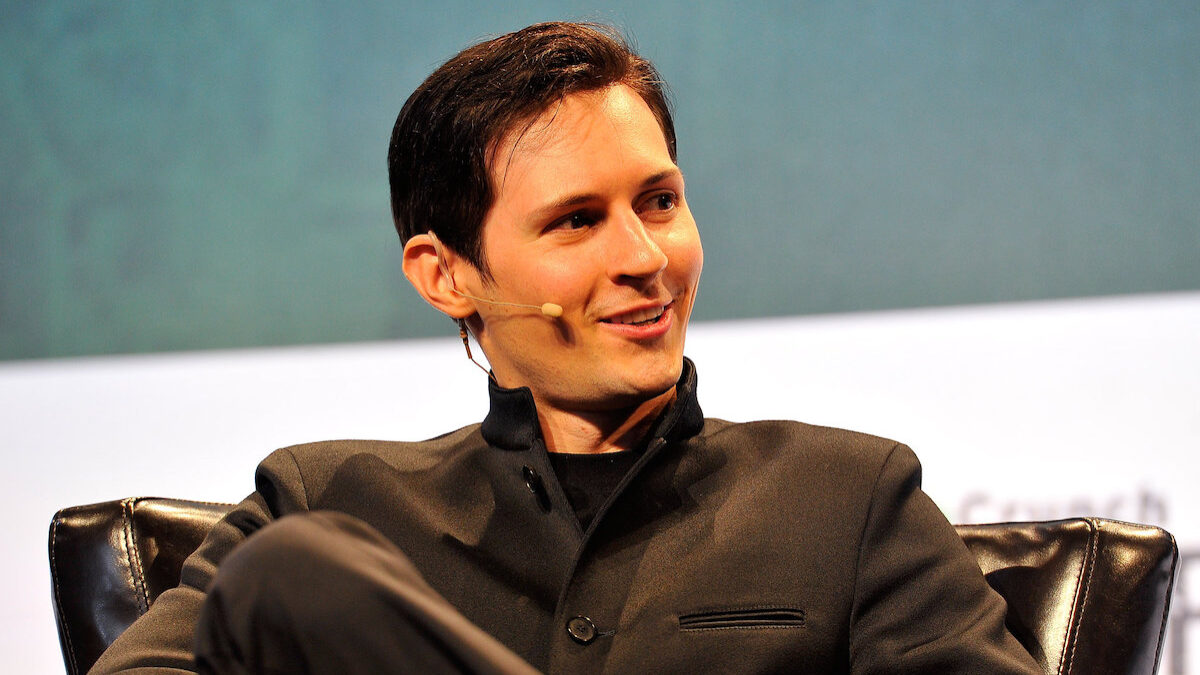
Hillary Clinton is trying to win the Oval Office by promising that Americans are “stronger together.” She insists she “really believes it.” She wants to be everyone’s president. This is the way forward for America.
Given Clinton’s partisan history, she might be the least qualified person in the nation to preach a “unity” message. Then again, she might only be the second least qualified.
I’m done with political boosterism. Stop telling us how awesome we are. Hope and change! Believe in America! Stronger together! Is any of this working? Every cycle we get this ego-stroking, and meanwhile I see near-universal agreement that our nation is in decline.
Perhaps it’s time for a new sort of slogan. Here’s my suggestion: Everyone Is Awful.
Deplorable America From 10,000 Feet
I’m a conservative, so I’ll start in obligatory fashion by saying: Poor people are awful.
They do the majority of the murdering and mugging in this country, and are more likely to be obese, watch television most of the day, or neglect their children.
Poor people, right? Here’s the problem though. Rich people are awful too. In some of the wealthiest corners of society, corrupt men spend their days rolling in ill-gotten lucre while rich women snub anyone who can’t afford a Chanel handbag. They hire cheaters to take standardized tests for their kids, and fight and claw over spots in prestigious pre-schools. Deplorable!
Clinton has recently drawn our attention to the deplorable white nationalists, who really do have some terrible views, whether they’re urging non-Nordic Jews (those wily troublemakers) to pack up and head to Israel or encouraging abortion as a convenient means of eliminating excess brown people.
Still, there are other race warriors who could give the white nationalists a run for their deplorable money. To my knowledge, the alt-right has yet to start a riot, and has never appeared at state fair calling for law enforcement to be “fried like bacon.”
There Are Loathsome People Everywhere
Pat Robertson and his cronies have recently reminded us how awful religious people can be. I myself already knew this from experience: as it happens, religious extremists gave me my first real lesson in the cesspool that is the internet.
When I first became a Catholic in 2005, I wandered into some online forums looking to discuss my newfound interest in traditional liturgy. There I encountered some nut-job reactionaries who spammed me with a torrent of crude notes and emails, primarily because I was a woman who had disgraced myself by wearing pants and pursuing an advanced degree. I’m still a proud Catholic, and I still love traditional liturgical communities. Seriously, though. Some of those people were just deplorable.
I’d be remiss, though, if I didn’t mention how much rude, crude, or aggressive spam I’ve gotten from: 1) Proudly unchurched people who just want me to know that there is no Hell, but if there were, it would be full of people like me, 2) “Sexual minority” activists who hope to push my buttons by telling me in detail about all the lewd acts they’re pretty sure I can’t handle, 3) Liberals who dream of the peaceful, loving, inclusive society they’ll have, just as soon as I, my family, and everyone who thinks like us have been slaughtered with the firearms that a more-enlightened society would not allow us to have.
And so forth. There are ne’er-do-wells in every nook and cranny of society. Basically, we all suck.
It’s a Mad, Bad World
One of the joys of punditry is discovering that every kind of prejudice you ever heard about is absolutely real. I mean all of it. Are you a man, or woman? A member of any ethnic group? Religious? Not religious? Yeah, somebody out there hates you.
Here’s the silver lining. These group generalizations aren’t totally wrong. But they also aren’t quite right.
Here’s the way to think of it. When a group is saddled with a negative stereotype, there usually is some basis for it. The stereotype captures a characteristic deficiency that is found more frequently in that group than in most others. It’s important to appreciate, however, that stereotypes don’t hold for everyone. Some people rise above temptation. And some effort to rise above will be necessary almost no matter who you are, because every group of people has its characteristic failings. People aren’t perfect, and there are many ways to develop a vicious character. Every life circumstance leaves us vulnerable to some temptation or other.
Every society deals with these challenges. Violent crime is always more common in the slums than in the banquet halls. Meanwhile, the corrupt and rapacious frequently find their way to the halls of power, where they heartlessly defraud the helpless and innocent. (The latter is especially prone to happen in a prosperous society, since the incentives to corruption are so rich.) We send the police after the one, and try to use checks and regulatory agencies to contain the other. It’s never a perfect system.
What Is Meant By ‘Judge Not’
This week we’ve seen several prominent conservatives try to justify Donald Trump’s appalling sexual misconduct with some version of the “judge not” defense. We’re all sinners, and so forth.
This is revolting. To my mind, the apologies are far more noxious than anything Trump himself has said or done, since appalling misconduct is exactly what we should expect from The Nominee.
As a Christian I take seriously Christ’s words that we should “judge not,” lest we ourselves be judged. But I’ve always understood that to mean that we should be careful and judicious about harboring prejudices against people based on a limited appreciation of their circumstances. It doesn’t mean that people who have presented themselves for our highest public office should be spared from scrutiny, no matter what they do or say.
What is called for in most circumstances is careful and prudent discernment, which appreciates that different sorts of people are naturally susceptible to different temptations. Walter White’s example notwithstanding, an educated white lady like me can’t claim much moral credit for staying out of the drug trade. On the other hand, I might deserve some props for not becoming Gloria Steinem. We all get tested, but not all in the same way. It’s easiest to write off people who fail in ways that you yourself never would, but in reality, those are often the people you are least equipped to judge fairly.
Put Your Own House In Order
Some people do pass. The poor aren’t all criminals, the rich aren’t all fraudsters, atheists can be humane, and religious people don’t all want you to burn in Hell. I’ve even found honor among lawyers and politicians! Deplorables are everywhere, but virtue can also be found in surprising places. We shouldn’t give up on humanity yet.
What we should do is direct our criticism towards those we’re in a position to influence. Write your own name at the top of that list.
Insider criticism is some of the most constructive we can have. For instance, J.D. Vance’s Hillbilly Elegy has been justly praised as a real, soul-searching attempt to understand a class of people on their own terms, appreciating their virtues but also being honest about the warts.
Even if you disagree with Vance on various points, you can see that he cares deeply for the Appalachian whites that bore and raised him. At the same time, he cares enough not to practice false charity. He knows that his people need to “own” certain social problems if they want life to be better for their kids and grandkids. We could use a lot more tough-but-caring social critics like Vance, ideally from a range of different classes and ethnic groups.
Are Americans “better together”? Possibly. But if the parts are awful, the whole probably won’t be all that glorious. So start with the presumption that everyone is awful. Let’s work on that.









